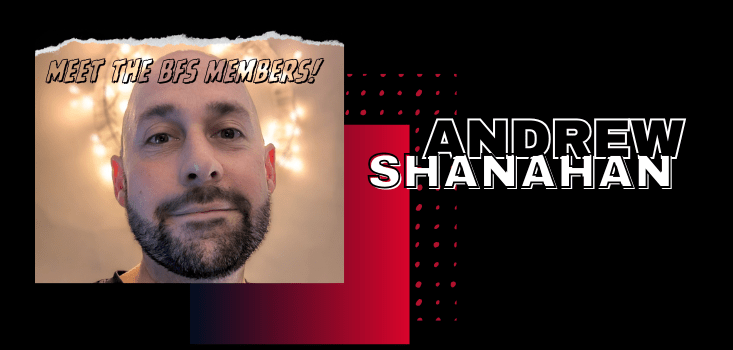Every Friday, we meet a member of the BFS and peer deep into their soul (or, at least, a form they filled out). Want to be featured? Email us: online@britishfantasysociety.org
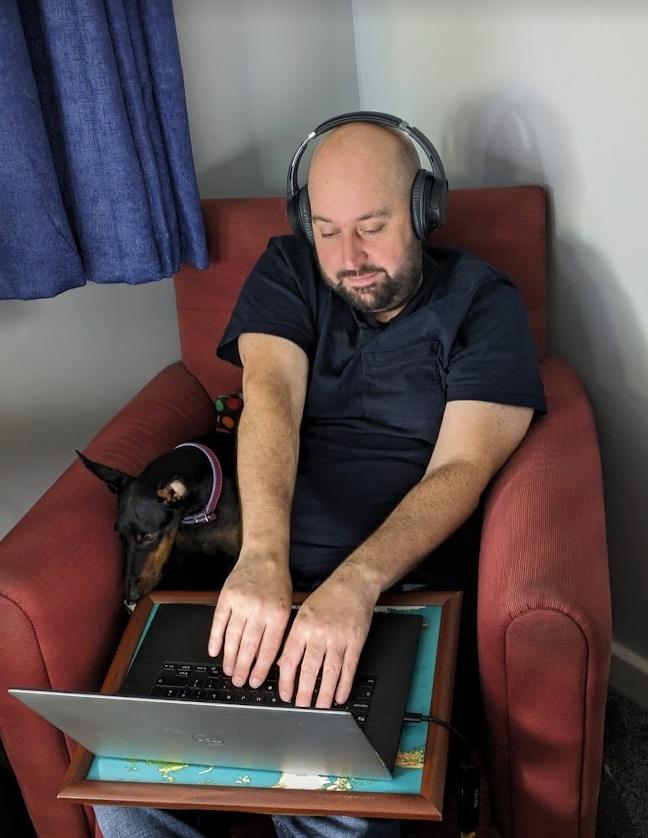
Name:Â
Andrew Shanahan
Which region are you based in?Â
North West
If you write, which genre:Â
A rabid mixture of sci-fi, horror and post-apocalyptic fiction
Are you drawn to any specific SFFH sub-genres?Â
Dystopias, post-apocalyptic situations and people making mistakes seem to be a recurring theme of my writing.Â
Your influences
Tell us about the book/film/thing that got you into SFFH: What was it? How old were you? What impact did it have on you?
What got me into post-apocalyptic fiction was the SAS Survival Handbook, which I got a copy of when I was about 8. I loved it. As a hyper-anxious pre-teen in the West Midlands, there was something really calming about learning that a polar bear’s liver contains fatal amounts of Vitamin A and therefore shouldn’t be eaten.
The SAS Survival Handbook also had a survival kit that you could make and for about a year that was my sole focus and it’s what all my pocket money and birthday money was spent on completing. I remember that after 12 months of buying snares, waterproofing matches and learning where I could find a flint and strike, I only had a condom to collect. Condoms are essential survival gear because they can hold up to 2 litres of fluid, which is a fact that you might be better not to consider too closely.Â
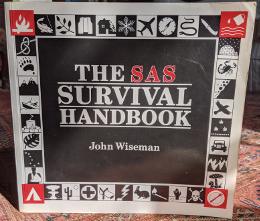
My older brother told me that condoms could be bought from pharmacies, so I saved up and took my money along to the chemist.
“I’d like some condoms please. Extra large if you have them,†I said. The pharmacist looked like she’d just swallowed her tongue, as she considered the weird eight-year-old in front of her.
“But what do you want condoms for?†she asked.
Honestly, people could be so dumb!
“Survival,†I replied. Social services were called.
How does that early influence show up in your work now?
I’m borderline obsessed with survival and end of the world scenarios. However, I’m also fairly weird, so I never quite look at the theme from conventional angles.
Where do you draw your creative inspiration from?
Everywhere. I try not to read in my genre too much because I’m worried that it will pollute my own creating. However, I will always treasure reading The Road. I like to read fiction that I’m never likely to write, so I read a lot of crime and action. Crime, because I love the intricacy of the stories and the lengths they go to, to avoid telegraphing what is happening. Action, because I love the stupidity.
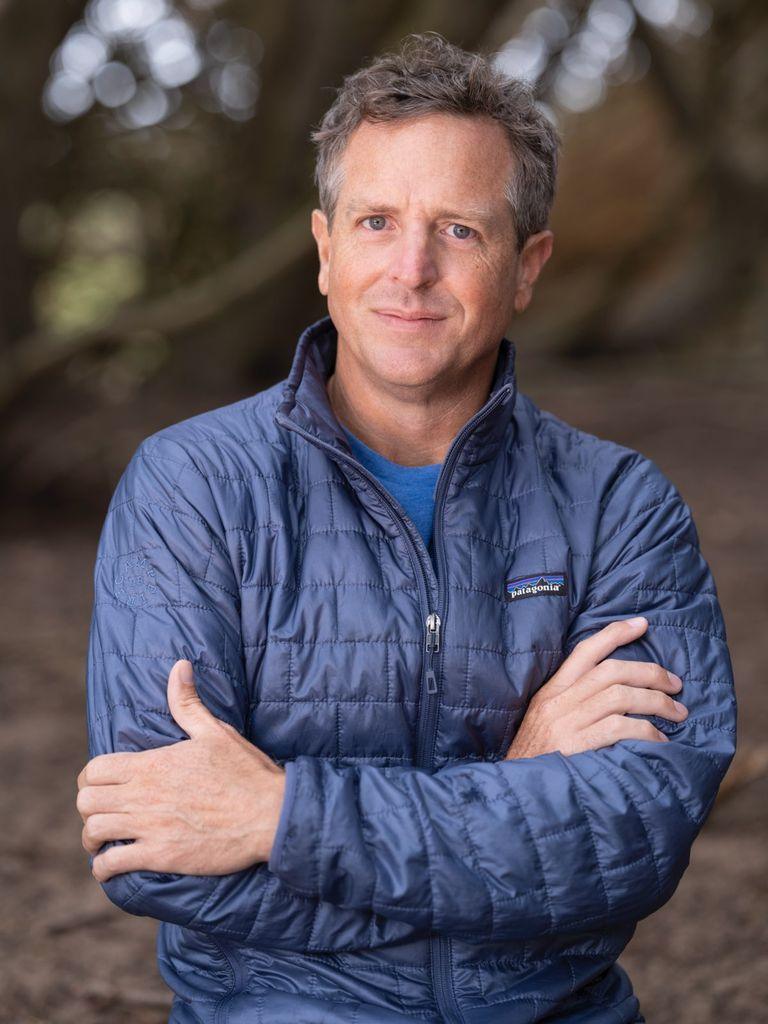
Who do you look to as a genre hero? Why?
There are so many, but Hugh Howey (pictured) is someone who has written terrific stories which balance good writing and excitement; he’s also worked hard to support others through his blogging. Plus, he’s living proof that authors can look good in swimming trunks and I aspire to meet the benchmark he’s set.Â
Your work
You’re stuck in an elevator for 60 seconds with that hero, and they want you to describe your work. Give us the pitch.
I write satirical stories which often involve someone losing a leg or being sucked into the jet engine of a plane. I think they’re funny.
What are you working on right now?
I’ve just published B of the Bang, which is a story about a specialist security company who work with billionaires. They send an alert to their customers telling them to get out of London in the next 70 minutes as a nuclear missile is inbound. The story is about how that news impacts the lives of a number of Londoners from all different sections of society.Â
(Pictured: Andrew tracks his latest novel, B of the Bang, on his office walls)
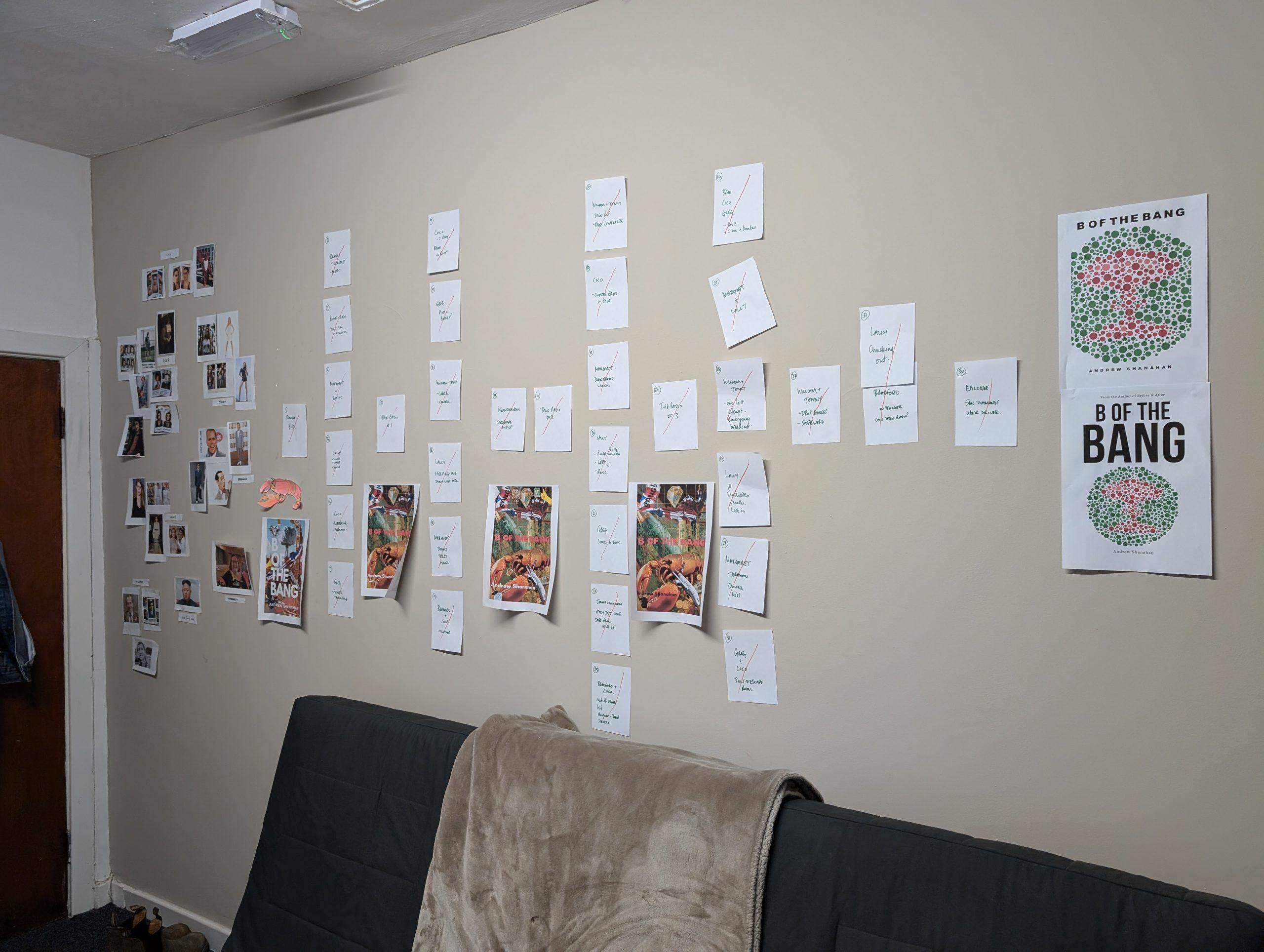
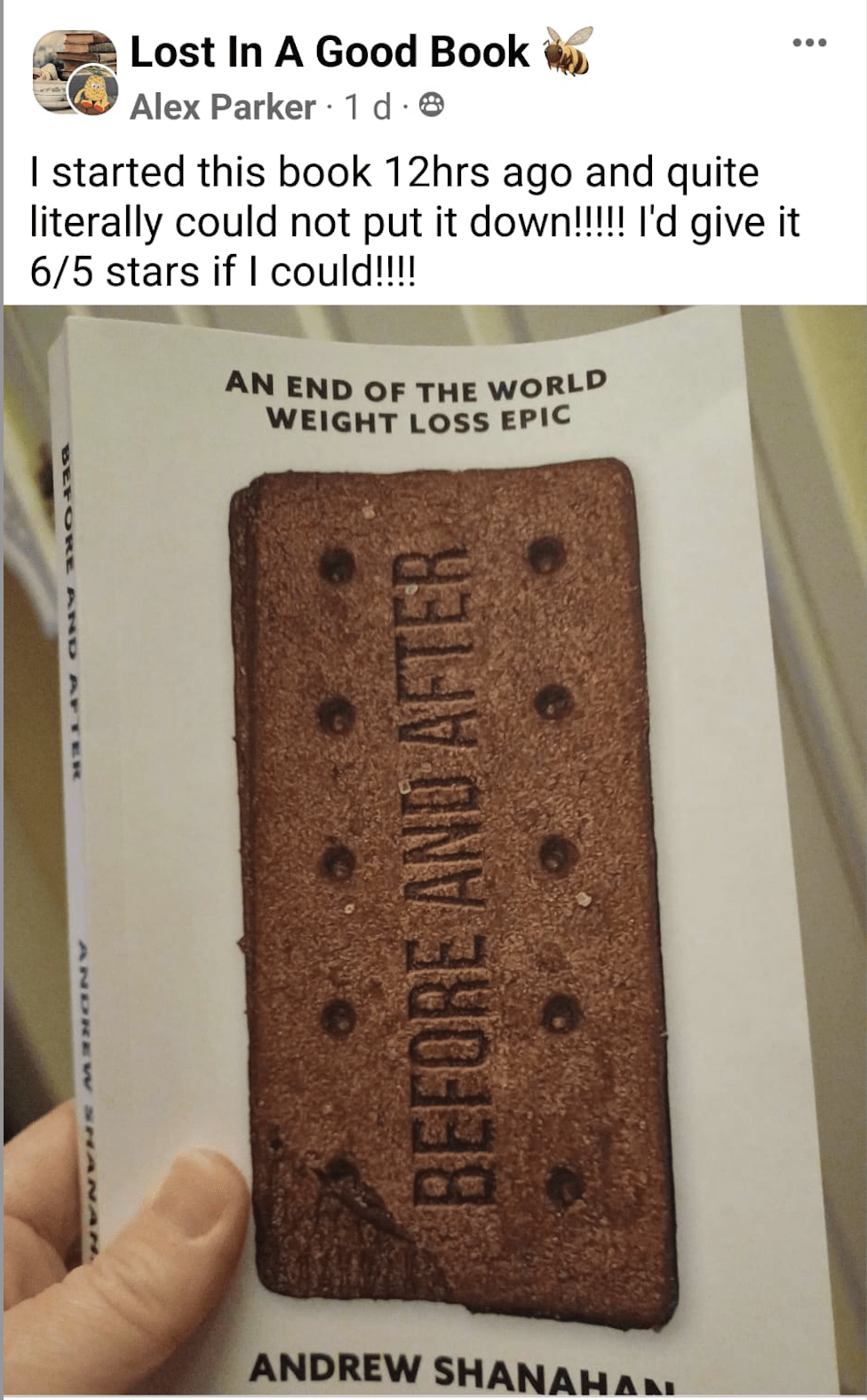
Thinking about all the stories/work you’ve done, what sticks out most in your mind? Why?
I remember publishing Before and After and feeling a sense of profound satisfaction that I’d managed to tell a story which was both interesting and made a point. I think that set the tone of what I’d like to do for the rest of my writing career.Â
(Pictured: a reader’s reaction to Before and After)
Where and when do you create/are you at your most creative?
I’ve been writing for newspapers and magazines for 20+ years and so I’m pretty professional about writing. If I have a deadline, I hit it. Consequently, I don’t really need to be in a particular place to write. That said, I do like to be in my office with door locked, sound-cancelling headphones on and cup of tea (black with honey) cooling by my side. I usually have my dog Quinn (pictured) next to me too. She’s my harshest critic, but she has impeccable opinions.
What’s the best advice you’ve received about creativity?
Don’t get it right, get it written.
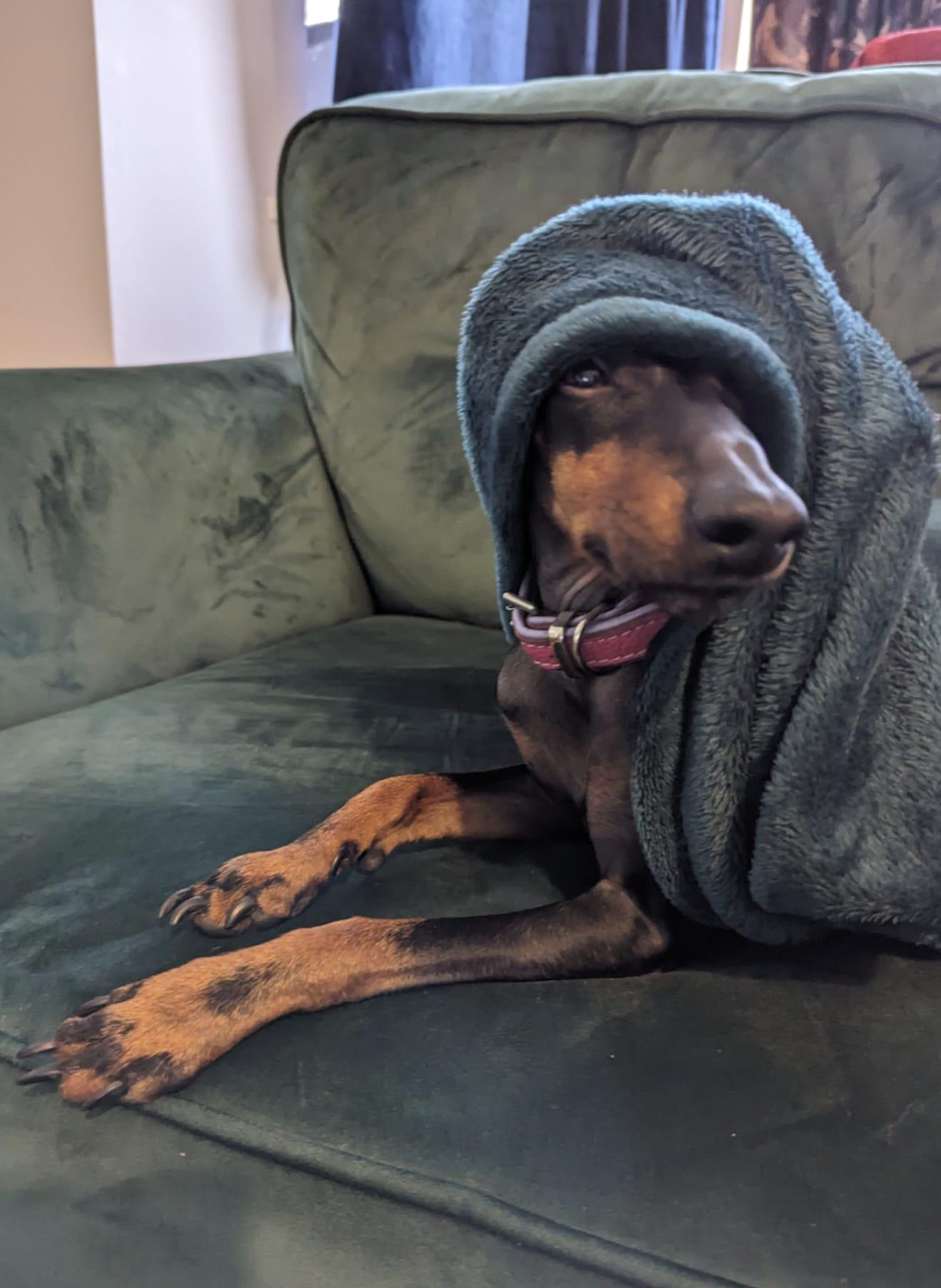
What’s your writing soundtrack?
I listen to anything that doesn’t have too many words. Godspeed You! Black Emperor, Explosions in the Sky, Do Make Say Think, but I think I’m a top 0.5% listener to Jon Hopkins on Spotify.Â
The quickfire round
Sci-fi, fantasy or horror?
Sci-fi
Quiet or loud?
Quiet
Dark or light?
Dark
Strict lines or genre blend?
Blend
Awards or bestseller?
Bestseller
Fiction or non-fiction?
Fiction

Poetry or prose?
Prose, but I’m weirdly attracted to Australian poets (Les Murray, especially)
Plotter or pantser?
Plotter
Reading or listening?
Reading
(Photo of Les Murray by Peter Solness; source: The Poetry Foundation)
Notebook or computer?
Computer
Favourite SFFH book of all time?
The Road
Last book you read?
The Hit by David Baldacci
Any SFFH author on auto-buy?
No, but I’m always interested in what Ben H Winters (The Last Policeman trilogy) is up to.Â
Favourite podcast?
Diabolical: Evil Schemes Done Better
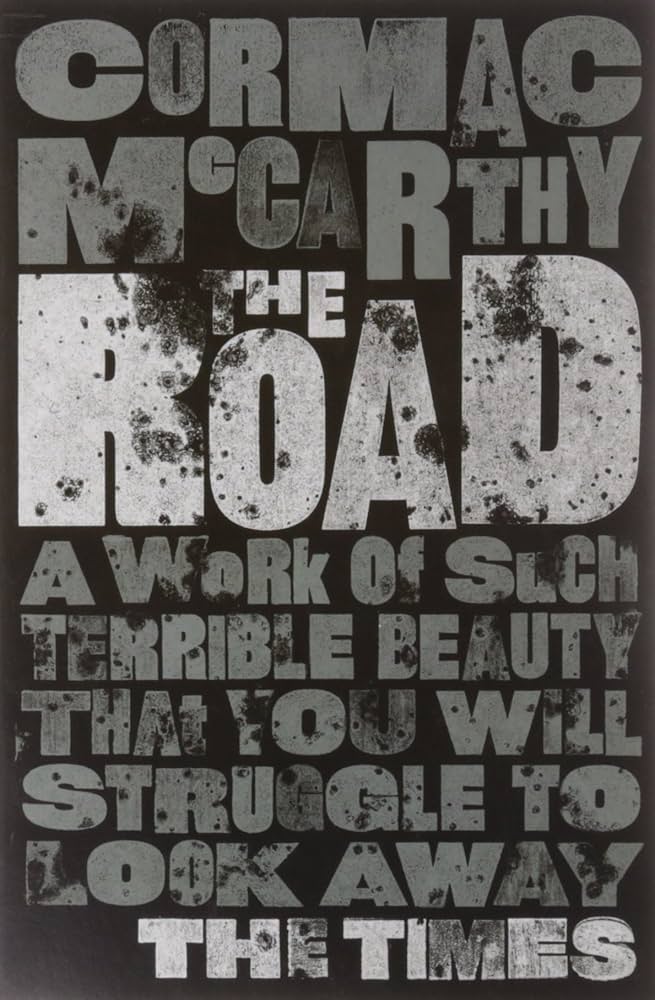
The home stretch
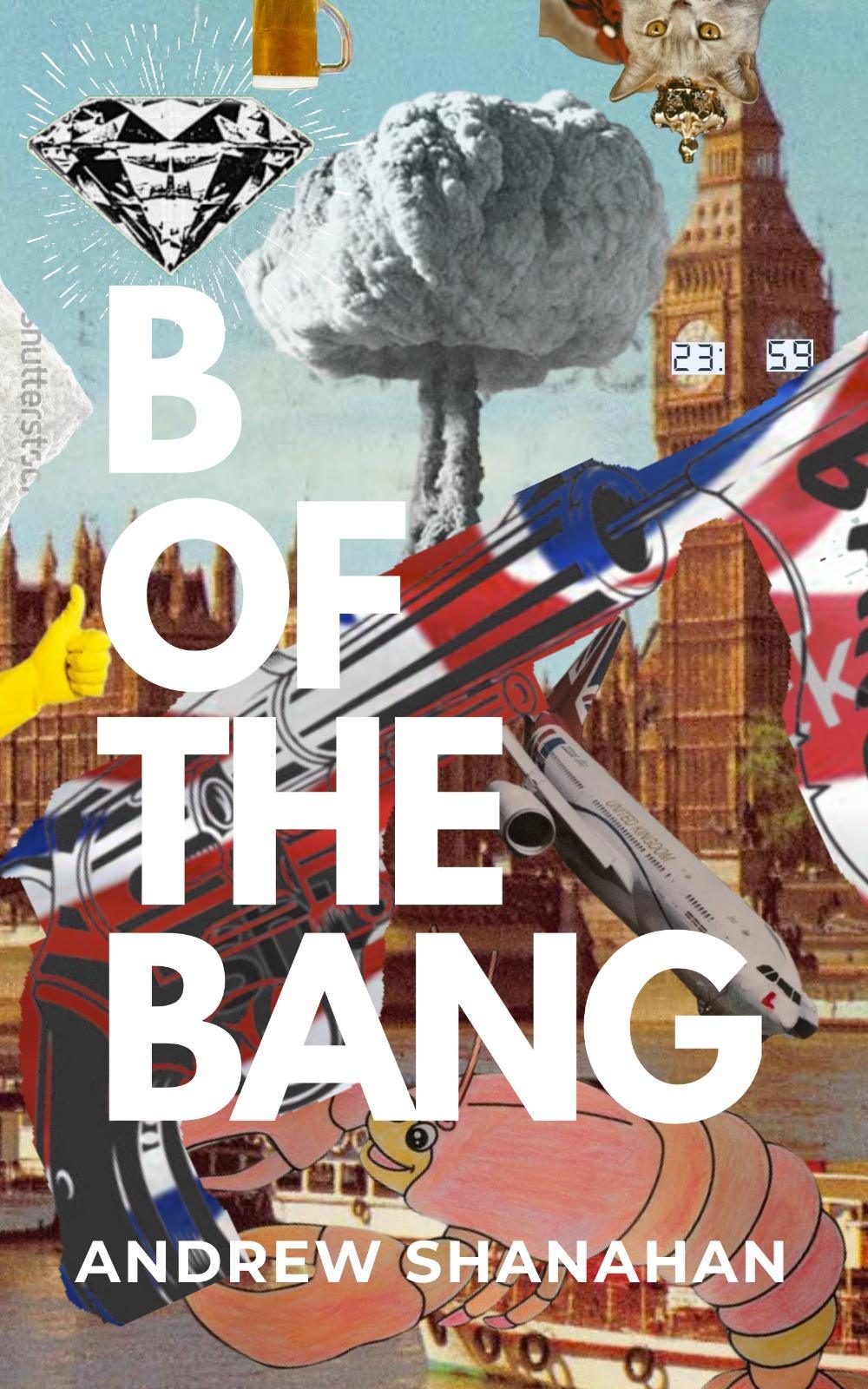
What’s the best thing about being part of the SFFH community?
I’ve only just joined. I’m hoping to go to some retreats and meet other writers and learn.Â
Time to plug your stuff! Where can we find you and your work? What have you got coming up? Consider this your advertising space.
Have a read of my Substack –  and I do enjoy making TikToks @shaniswriting.
And my new book, B of the Bang – a satire of wealth, power, lobsters, inequality, and why you shouldn’t flush wet wipes down the toilet – is out now; get it here.

